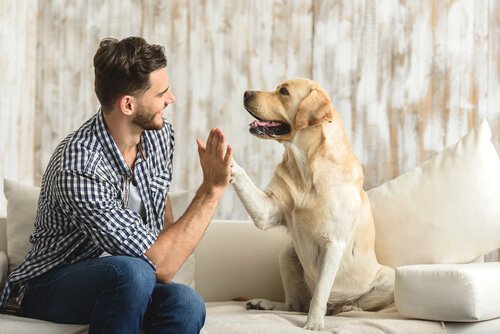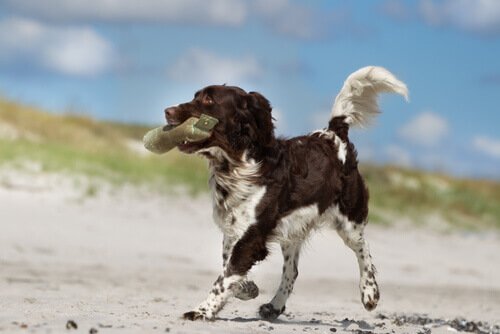Get a Canine Ethology Consultation for Your Dog

Ethology is a specific area within behavioral biology that objectively and scientifically studies animal behavior. During a canine ethology consultation, the ethologist will ask for the health status, habitual behavior, lifestyle, and routine of each one of its patients.
Its theoretical approach and derived practices place special emphasis on the instinctive behavior of each species. It also looks at how we can alter or improve such behavior through training.
First of all, in order to be an ethologist a person must have, or be close to obtaining, a degree in veterinary medicine. So, in short, ethologists are veterinarians specialized in behavioral biology.
Presently, canine ethology is an advanced field sought after by many professionals who want to join the field. Moreover, there are many veterinarians who choose to specialize in dog ethology. They do this in order to expand their knowledge about dog behavior.
It’s a field that’s all about offering comprehensive care to their patients. At the same time it deals with their physical and mental health.
Although less recognized, feline ethology is also an expanding area within the veterinary sciences. Currently, it’s a discipline with a lot of room for development and yet it’s advancing at a fast pace. This is also a very attractive field for many veterinarians.
What is an ethological consultation for dogs?

Usually, an ethological consultation is for diagnosing and recognizing the causes of behavioral problems in pets, and then correcting them. A canine ethologist, for example, will want to identify why a dog has certain behavioral disorders. After doing this, he will try to help it overcome them.
Canine ethology
Among the most common problems that a specialized veterinarian usually touches on during a canine ethology consultation are the following:
- Aggressiveness
- Problems of interaction with other dogs, animals, stimuli, people, and any other sort of socialization problems
- Excessive fear
- Stress
- Destructive behavior
- Separation anxiety
- Coprophagia (to eat your own or someone else’s excrement)
- Possessiveness in relation to their objects, the house, or their owners
- Stereotypes and OCD (obsessive-compulsive disorder)
These problems appear for several different reasons. Because of this, ethologists must be able to identify them in order to diagnose and then administer suitable treatment.
It’s true that the genetic inheritance of an animal influences its personality. In fact, its behavioral disturbances generally stem from its upbringing.
Behavioral problems in dogs often derive from unsuitable training using counterproductive methods. These can include the use of choke collars and other forms of torture and punishments.
Poor socialization and the deprivation of social interaction are also determining factors which can produce inappropriate behavior. Because of this, ethologists often ask many questions about the patient’s history, lifestyle, and routine.
Apart from all of this, behavioral problems can also be the result of some kind of disease or condition. When an animal experiences intense pain or its senses are affected, it can act and react with fear, aggressiveness, isolation etc.
For the correct treatment of all of these behavior patterns, ethologists also require clinical evaluations and other tests in order to verify the health condition of their patients.
The treatment of bad conduct and disorders depends on how you control or even eradicate the underlying medical condition.
How can a canine ethology consultation help your dog?

The kind of help any canine gets after an ethological consultation will mainly depend on the specific needs of every individual animal. If your dog has behavioral problems or strange behavior, then you should consult an ethologist as soon as you can.
Just like with diseases related to your pet’s physical condition, behavioral disorders also tend to have a better prognosis when diagnosed early.
In spite of their high success, ethological treatments don’t work in all cases. Unfortunately, there are very complex behavioral problems that can’t be completely cured.
However, working with an ethologist will be essential in order to control such behavior, and will allow a dog to lead a more balanced life.
The best form of prevention for behavior disorders is to provide a healthy, positive, and balanced training.
If you don’t have the time or the knowledge to train your furry companions using only positive reinforcement, then the best thing you can do is to consult a professional trainer.
